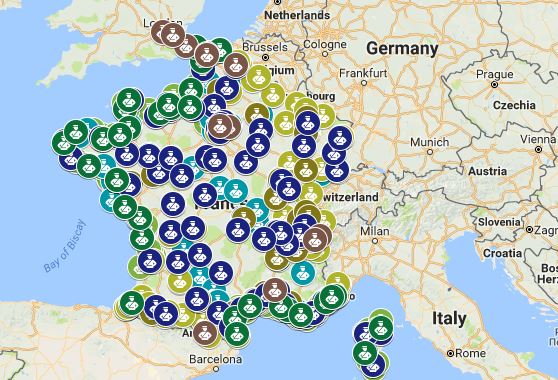The recent adoption of the new anti-terrorism law by the French authorities, which entered into force on 1 November 2017, introduces extended border controls across the territory of France, including international transit zones in the cities of Paris, Lyon, Marseille, Toulouse, Bordeaux and Lille. Civil society organisations raise concerns about the impact of the new law on potential push backs of people seeking protection.
The new law follows exceptional measures introduced during a nearly two-year state of emergency in France, during which authorities have inter alia applied border controls leading to push backs of asylum seekers to Italy. Organisations such as Amnesty International and Forum Réfugiés-Cosi have previously documented a practice of refusal of entry and return of asylum seekers at the Franco-Italian border without the opportunity to apply for asylum in France or receiving sufficient information about their rights.
Further concerns have been raised by multiple organizations regarding the risk of racial profiling which seems to have been legalized under this new law. Additionally, following a Minister of Interior Circular which encouraged the administrative detention of “illegal immigrants”, racial profiling seems to have become the norm. As a result, the number of individuals administratively detained has doubled compared to a year ago.
For further information:
- ECRE, Refugees Rights Data Project findings: current response to the situation in Ventimiglia by Italy and France disregards human rights, 06 October 2017
- ECRE, France: Court decisions on Dublin detention contrast with government reform plans, 29 September 2017
- ECRE, France: Proposals to reform for reception and rapid integration, 14 July 2017
- ECRE, France: Detention still a primary instrument of migration control, 30 June 2017
- ECRE, French border guards violate right to asylum at French – Italian border, 17 February 2017
- AIDA, Country report: France 2016 Update, February 2017
Photo: (c) La Cimade, September 2017

